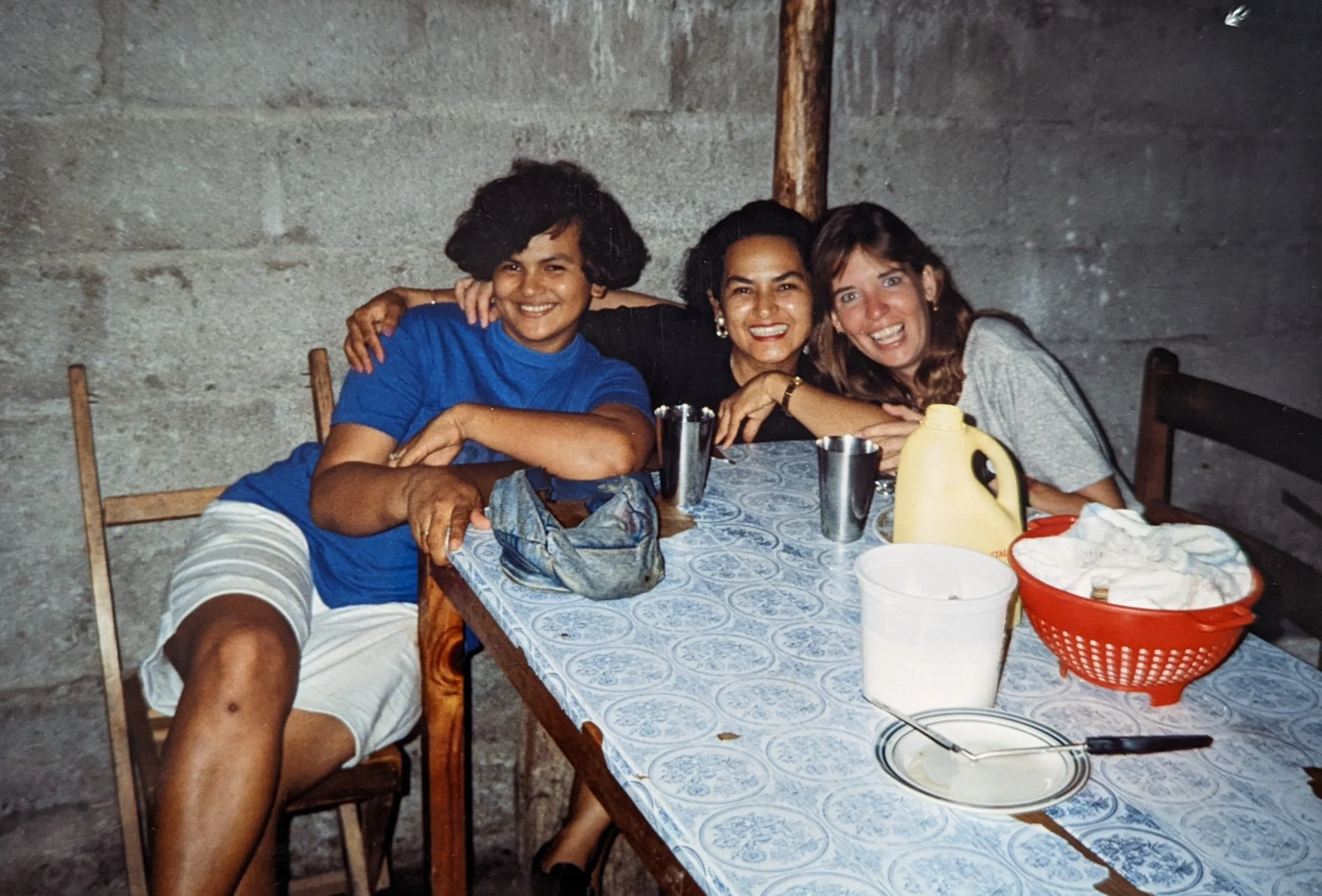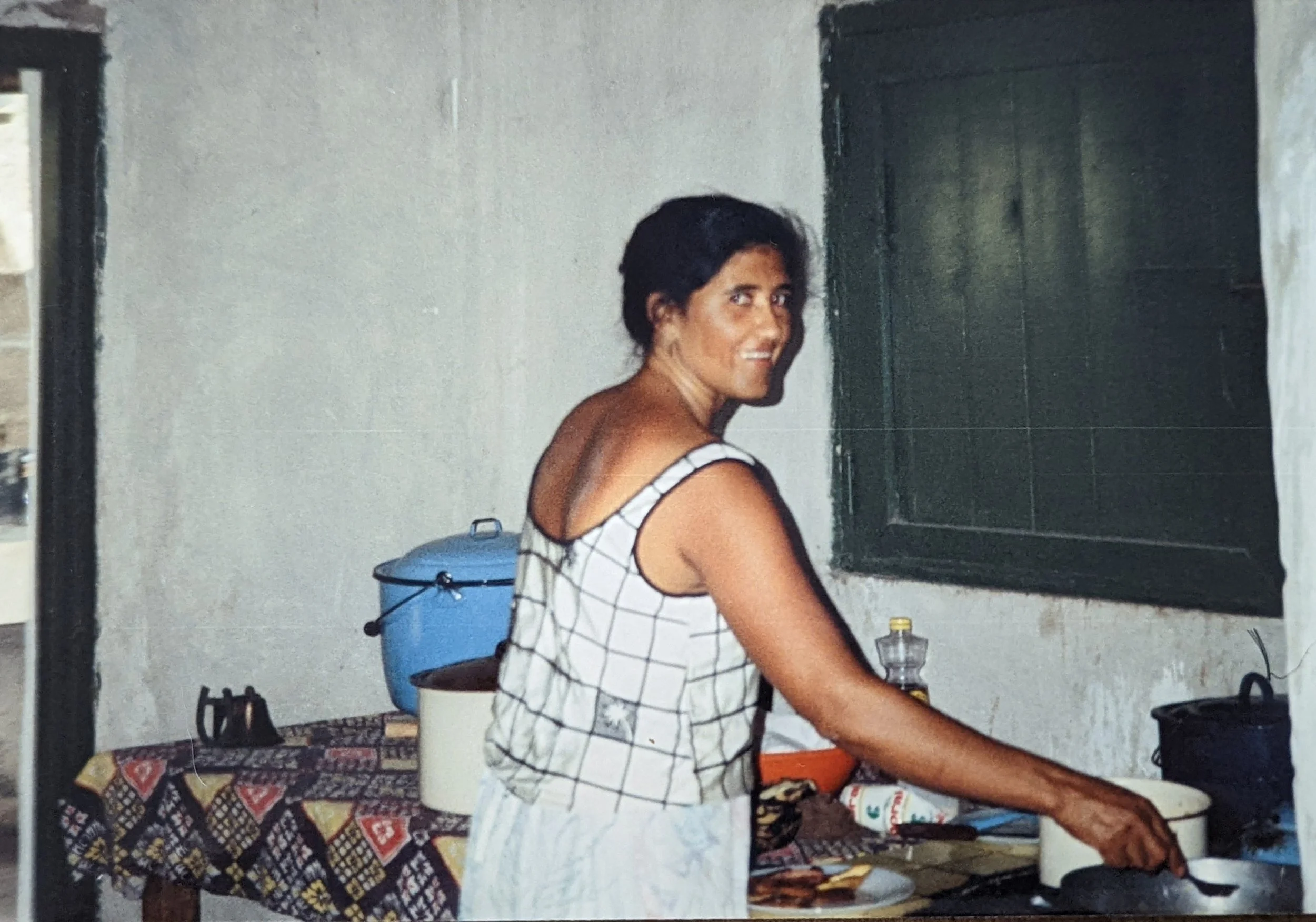Border Talk (11)
I moved to Honduras after graduating university. I had told my family and friends I wanted to make a difference in the world. The truth is I was running away from home. Four years earlier I had given my daughter up for adoption and was suffering with profound grief. I had hoped the jungle would absorb my pain.
I spent the first six weeks in Antigua, Guatemala studying Spanish at one of several language schools. Most everyone I met was an expat or a student like me. It didn’t take long to push my studies aside to hang out with folks who I could talk to without worrying about Spanish vocabulary, verb tense, and syntax. I would be living among Honduran and American nuns once I arrived in Honduras. I didn’t experience the urgency for language acquisition like some of the folks I met who would be working in banking, healthcare, education, and non-government organizations (NGOs) where speaking Spanish was essential. I assumed the nuns I would be living with would help me until I had the language skills necessary to thrive in Honduras. This was the first of many mistakes I would make while navigating a foreign country and culture.
I had attended Mount Mary University in Wisconsin; a woman’s university run by the School Sisters of Notre Dame. The arrangements I had made with the sisters at the Mother House in Saint Louis to live in Honduras did not translate well when I arrived at the convent in El Progreso. The sisters were ill-prepared to have a lay person living among them. I had visited the convent between my sophomore and junior year of college and had been treated well as a guest. Now, that I would be living with them, the sisters wanted to know what kind of work I planned to do. I was immediately embarrassed that I didn’t have an answer. I was even more embarrassed that I didn’t speak or understand enough Spanish to answer simple questions. The romantic notions I had fostered about living and working in the jungle dissolved as a walnut-sized ball of panic gathered in my belly. My lack of preparation was no match for the situation I had found myself in. This place is going to devour me, I thought while I made up the twin bed that would be mine at the convent until I had a plan.
I never really figured out what it was I wanted to do. I had worked full-time as a waitress while taking eighteen credits a semester. I had a strict schedule with clear goals. I had always had a job but didn’t know the first thing about creating a career path for myself. For months, I bounced around living with nuns who had already staked claim to the programs they ran in rural communities. I had become so self-conscious about my limited Spanish, that I relied on others who spoke English to help me. I felt inadequate and vulnerable. In moments of self-pity and even fear, I judged my circumstances against Maslow’s Hierarchy of Needs:
My basic needs were being met, but the rest seemed unattainable. Even though many of the Hondurans I met through the sisters, treated me with respect, they didn’t know what to make of me. I was a tall, white woman with blonde hair and a degree in education living among short, stout, dark-skinned farmers and shop keepers. I didn’t possess the skills necessary to build homes and water lines; things desperately needed in the small towns I lived in. I didn’t know the first thing about growing coffee or pinto beans or tending to cattle with bot fly. Aside from giving someone an aspirin for pain, I had no medical training; therefore, I lacked the knowledge to help someone with an injury or infection. I felt useless despite my life experiences and education. I was the Other-the person who didn’t understand the language or customs, and who looked different. I became a shell of my previous self; small and insignificant, living in a place that became increasingly difficult to navigate. I needed help and relied on the generosity of Hondurans who watched out for me.
I think about my Honduran friends and their kindness each time I hear something in the news about the mistreatment of migrants. Recently, Republican governors Ron DeSantis of Florida and Greg Abbot of Texas coordinated what the White House called a political stunt. Gov. DeSantis flew forty-eight migrants to Martha’s Vineyard from San Antonio while Gov. Abbot loaded two busses of migrants in Texas who were eventually dropped off near Vice President Kamala Harris’ house in Washington, D.C.
I live along the border and have witnessed the exasperation Border Patrol agents experience when policies from Washington are lost in translation for the boots on the ground. My husband and I have experienced the frustration and fear our ranching neighbors voice when fences are cut, and things are stolen out of barns and sheds by migrants passing through. Our border policies are in shambles. I don’t dispute that. What I take issue with is using people who are vulnerable to make a statement or to gain recognition. I can’t imagine the fear and confusion I would have faced had I been coerced into leaving my community in Honduras.
Today is Columbus Day, and I am reminded of how far we have come since my elementary school days where we learned Columbus “discovered” America, and how far we must go. I was also reminded of the lesson Atticus Finch teaches his daughter Scout in the novel “To Kill a Mockingbird” by Harper Lee, “You never really understand a person until you consider things from his point of view. Until you climb into his skin and walk around in it.”
Recommendations:
Recently, I watched Michael Collender’s TED Talk “Rediscovering Rhetoric-Persuasion from a Heart of Love” where he discusses Aristotle’s art of persuasion using Ethos (character), Logos (truth), and Pathos (empathy). When we see ourselves in others, it is possible to argue a point or desire with compassion. It’s a great place to start if you’re wondering how to have a difficult conversation.
If you would like to learn more about undocumented people entering this country and the lives they left behind, here are three books I recommend.
The Undocumented Americans by Karla Cornejo Villavicencio
The Death of Josseline: Immigration Stories from the Arizona Borderlands by Margaret Regan
The Death and Life of Aida Hernandez: A Border Story by Aaron Bobrow-Strain
If you are interested in reading about the history of race in this country, here are two books I recommend.
Caste, The Origin of Our Discontent by Isabel Wilkerson
Inheritance, An Autobiography of Whiteness by Baynard Woods




